As promised on Wednesday – Vietnamese pork noodle bowls! This popular salad-type dish is called bun thit nuong – vermicelli noodles topped with fresh and pickled vegetables, herbs and Vietnamese lemongrass pork, doused generously with nuoc cham sauce. Fresh yet full of flavour.
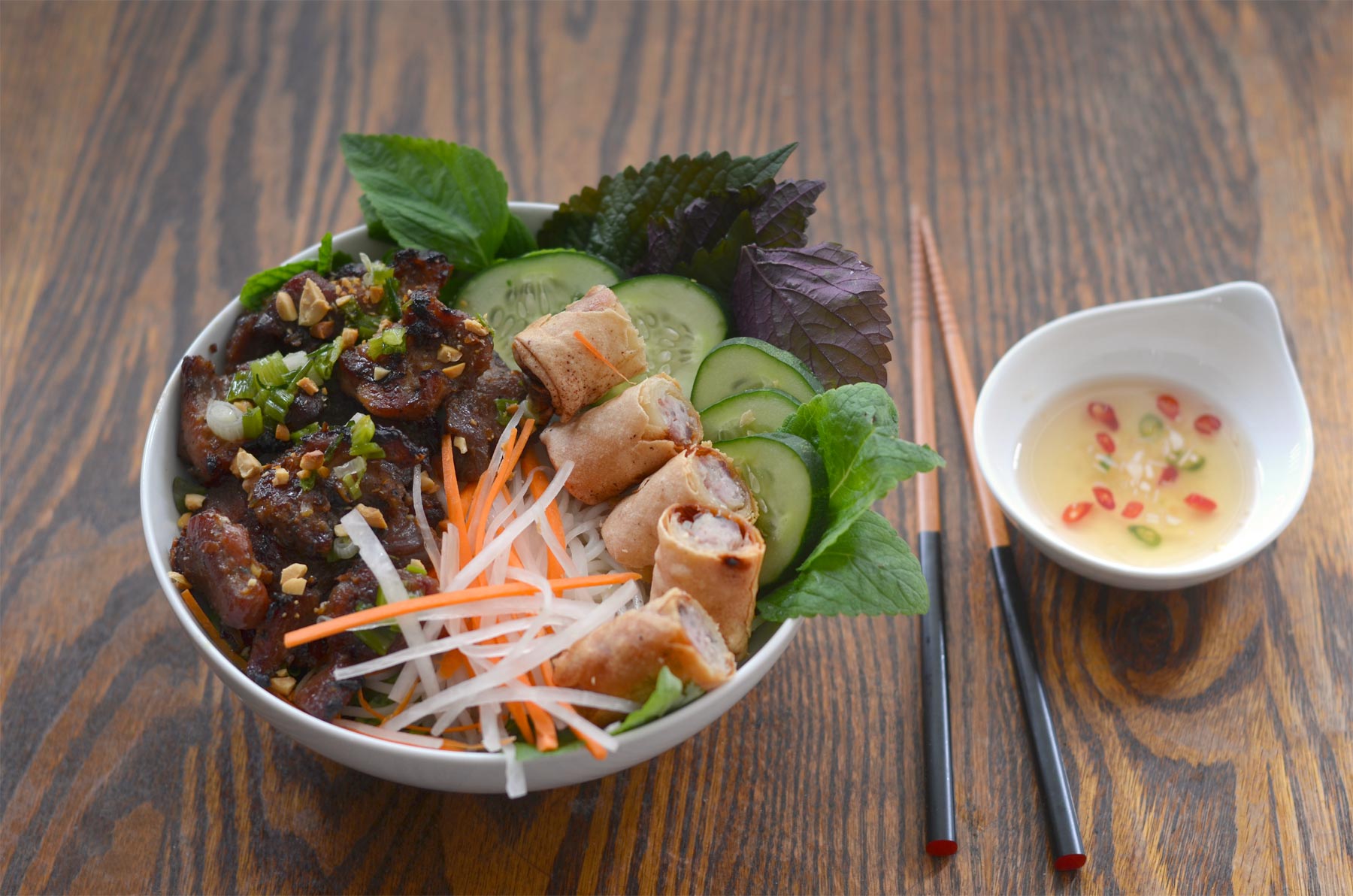
Assembling the pork noodle bowls
Noodles first. Then just pile everything on top! There are no rules, just jam it all in. Abundance is the word that comes to mind with these bowls!
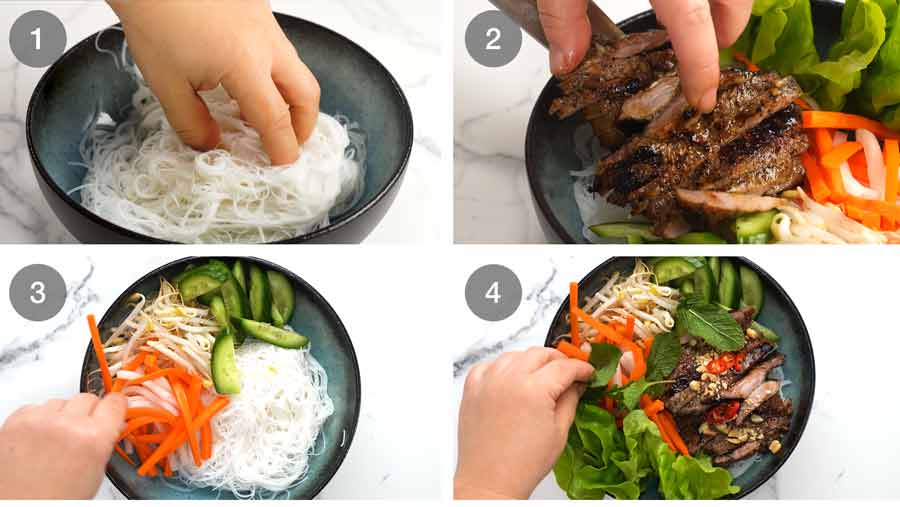
Finish with a good sprinkle of peanuts and fresh chilli if you dare (live life on the edge, I say!). And serve with jugs or bowls of the nuoc cham sauce on the side and douse generously. Remember, this is a mild flavoured nuoc cham, not a fishy one. So you need lots. You’re supposed to use lots!
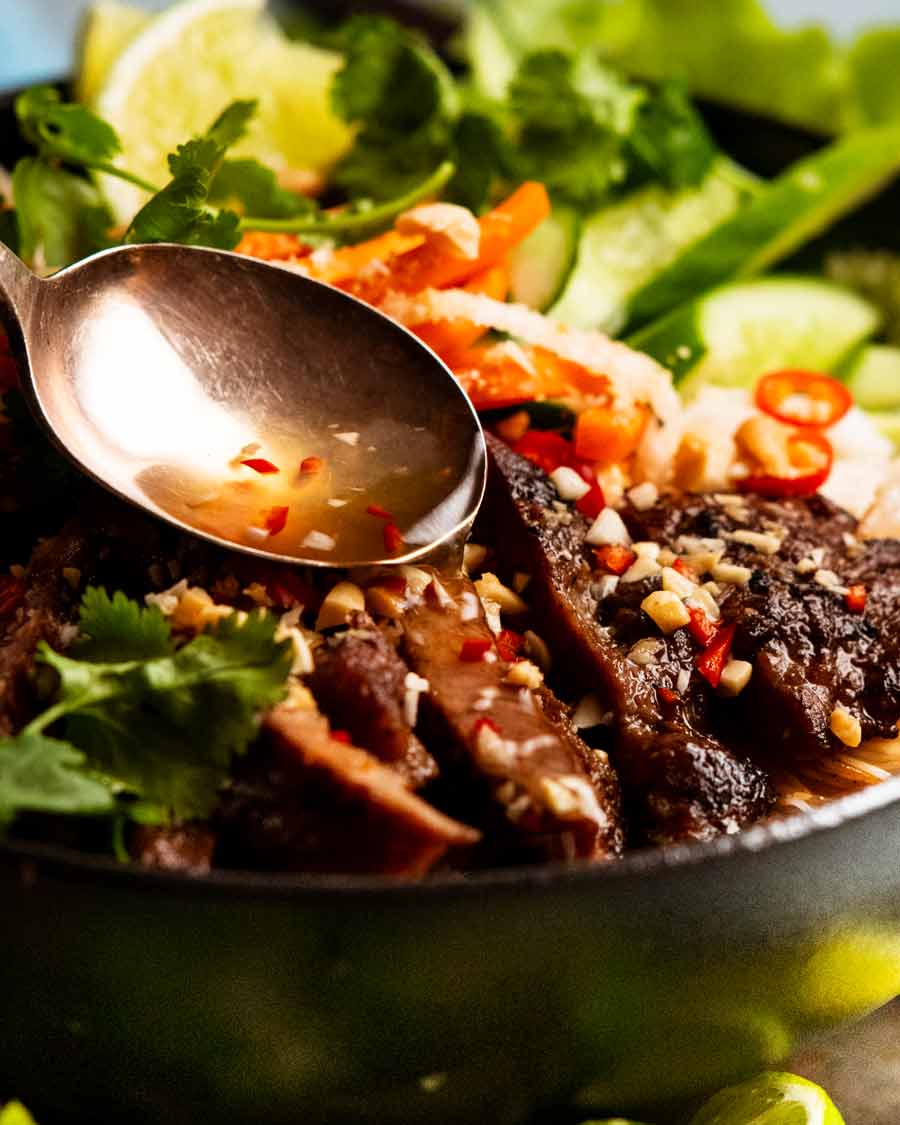
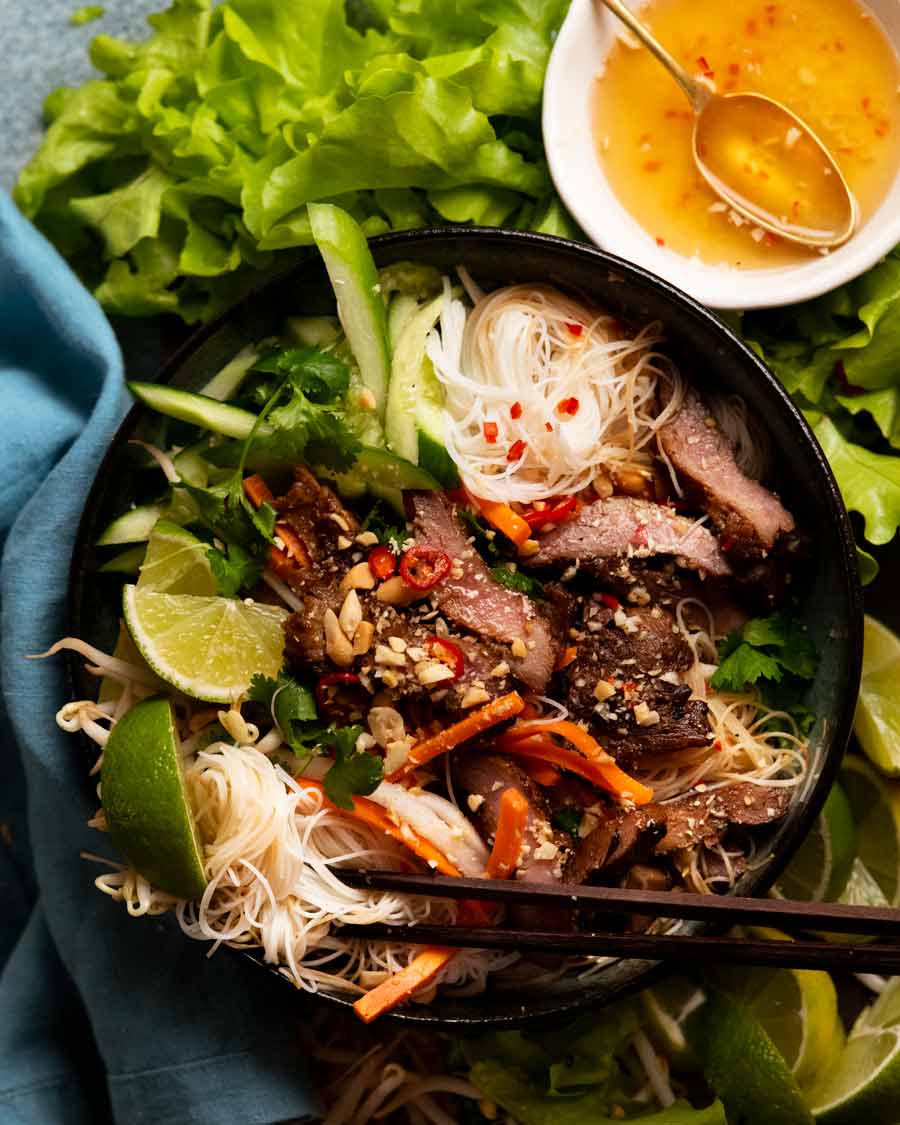
As for the eating part, there really are no rules. Some people (like me) will pick out some of the pork bits first because it’s their favourite part of the bowl. Then mix it up and get stuck in. It will end up looking like a jumbled up mess. A delicious one, at that! And don’t be afraid to keep adding more sauce on an as-need basis, as you continue through your bowls.
The noodles, vegetables & topping
So here’s what I use – typical of Vietnamese restaurants and takeaway places here in Sydney:
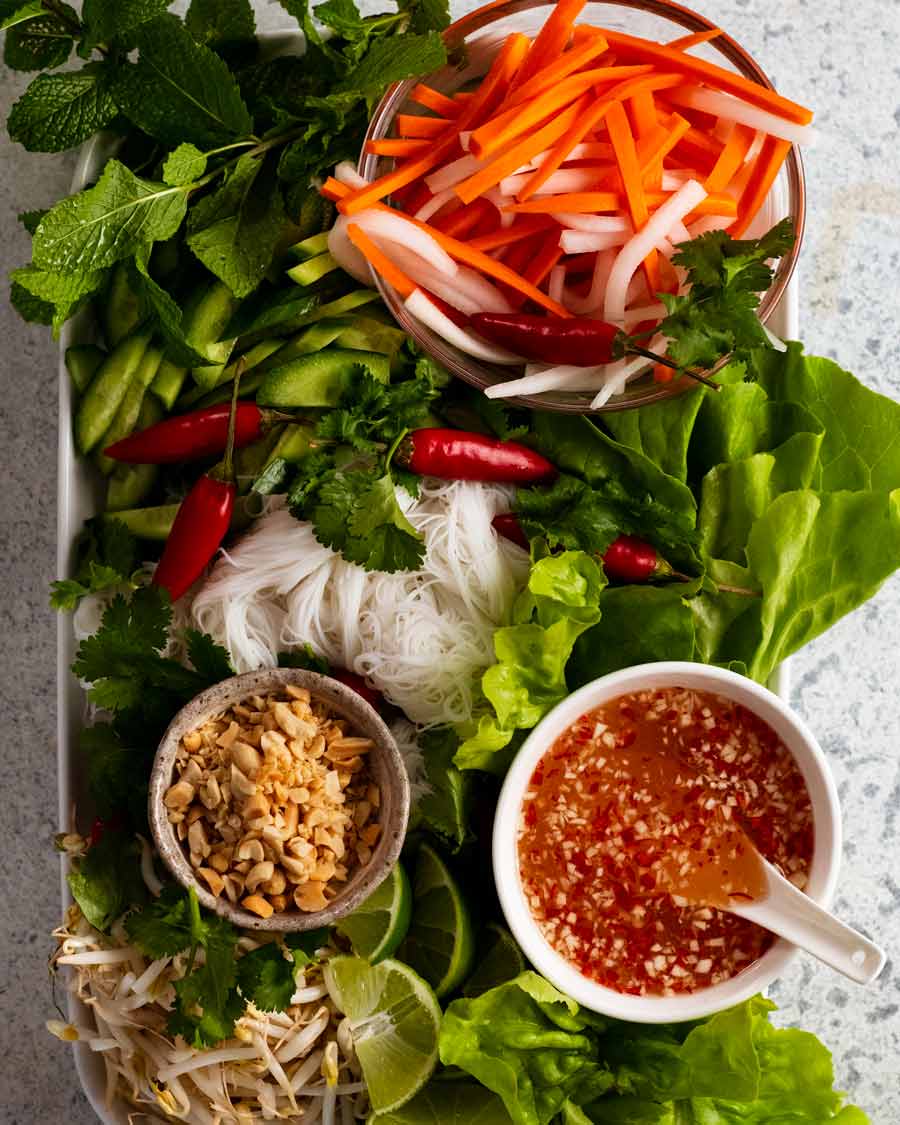
- Vermicelli rice noodles – the thin rice noodles prepared by soaking in boiling water. Substitute with other white noodles or bean thread noodles / glass noodles (
- Pickled carrot and daikon – quick and easy! See below for more.
- Nuoc cham sauce – the chilli-garlic-savoury-limey-sauce served with “everything” in Vietnam (and that’s no exaggeration!). See below.
- Lettuce – Either soft butter lettuce torn into bite size pieces or crisp lettuce, like iceberg or cos/romaine, shredded
- Cucumber and bean sprouts
- Herbs – mint and coriander/cilantro. Thai Basil is also lovely!
- Peanuts – finely chopped, for sprinkling
- Fresh chilli slices – optional
- Lime wedges – for optional extra freshness
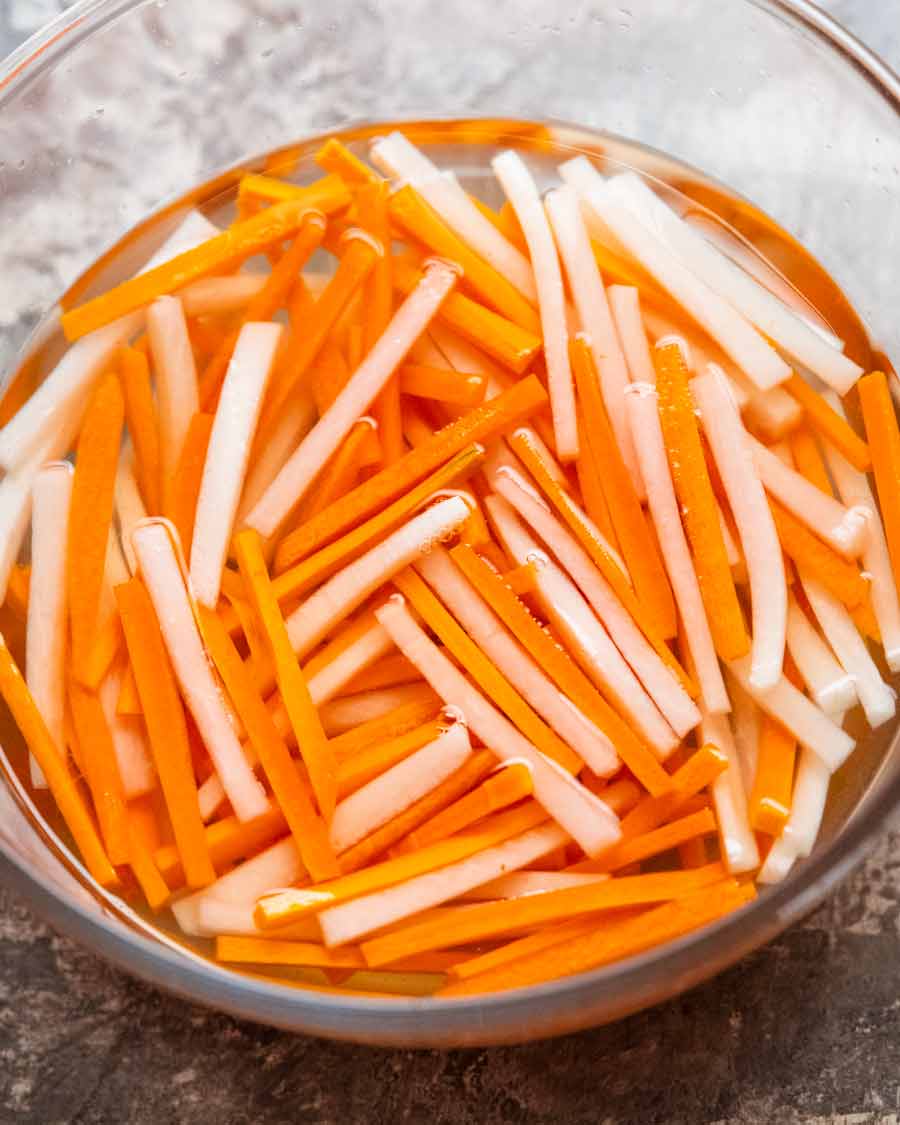
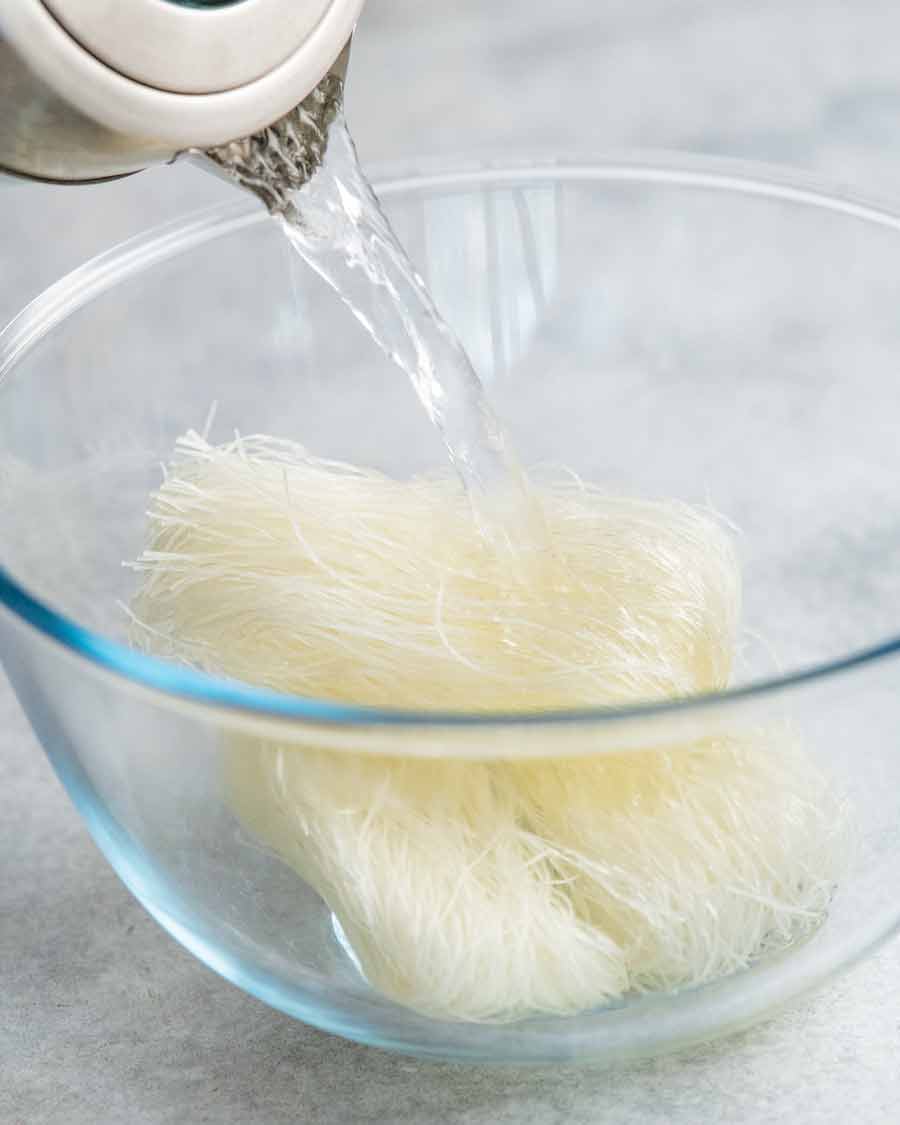
The pickled vegetables (pictured above) are the same as the recipe in the Banh Mi recipe. It’s simple to make – mix then soak for 2 hours. It’s the perfect texture-flavour addition to these bowls – the vegetables still have a great crunch to them but are floppy (nobody wants pokey raw carrot batons sticking out in their noodle bowls!) with a sweet, tangy flavour.
So much more interesting than raw carrots!
Here’s what you need. Just mix, then pickled the vegetables for 2 hours or even overnight.
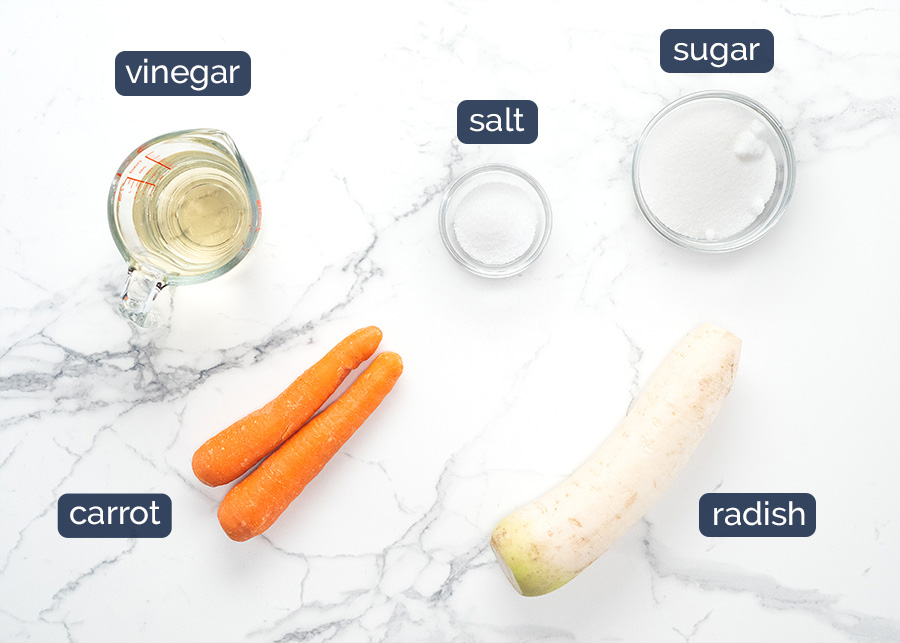
Vietnamese Bun Thit Nuong for Breakfast in Saigon
FAQ
What is bun in Vietnam?
What is the famous Vietnamese bun?
Is bun the same as vermicelli?
Are Viet buns the same as bihoon?
This Wikipedia entry for rice vermicelli suggests that Viet bun is the same as fine strands of bihoon/bihun used for dishes like spicy stir-fried Singapore noodles. In the Viet mindset, they’re not the same, even though if you say bihoon really fast, it sounds like bún (“boon”).
What is bún mắm?
Bún Mắm is a far cry from Phở. A typical bowl of Bún Mắm includes rice vermicelli noodles, egg plant, shrimp, squid, pork belly and flaky white fish. It is often served with a plentiful platter of crunchy vegetables and Vietnamese herbs, limes and fresh chilies.
What is a large size bun?
Large size bun is mostly for bún bò Huế noodle soup. The problem is that for years, Vietnamese restaurants translated bun as rice vermicelli, the equivalent of the tiny version of the noodles. In reality, the noodles most often used for Viet dishes are more like capellini size or slightly bigger.
What is the difference between Bun Thit Nuong and Bun cha Hanoi?
In Bun Thit Nuong, the noodles and meat are in a bowl together. The dish comes with a side of dipping sauce (Nuoc Mam Cham) that you would drizzle over the noodles. Everything gets tossed together before eating. In Bun Cha Hanoi, the meat is separated from the noodles.
